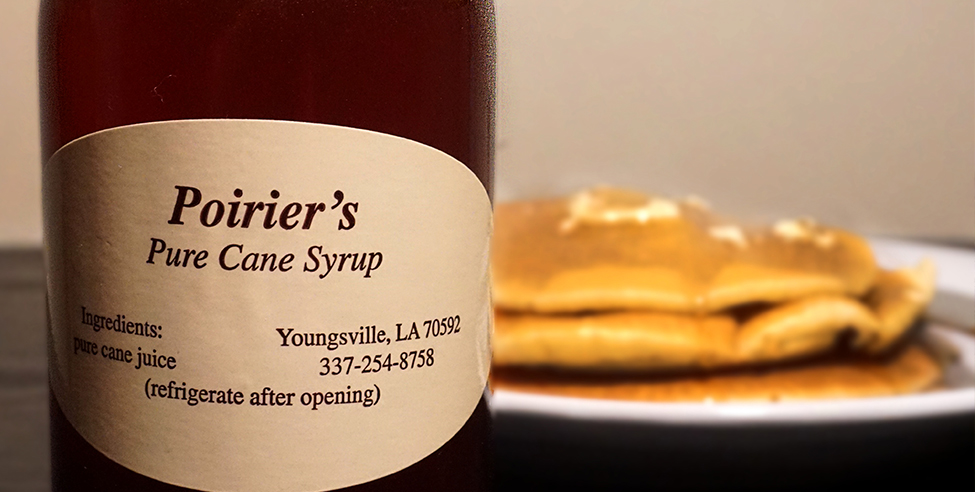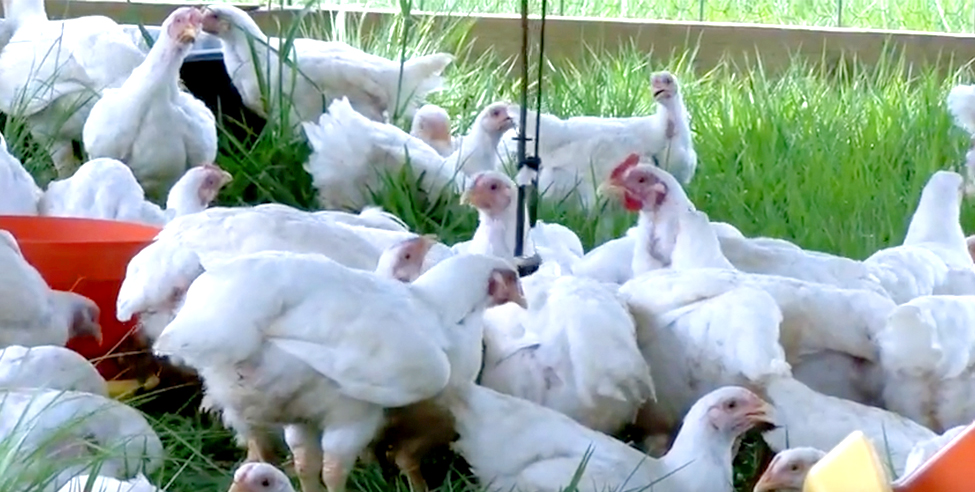LA Hydroponics // Growing Soil-free

by Michael Ballard, Guest Contributor
Poirier Cane Syrup // Sweet Traditions

by Spencer Valdespino, Staff Writer This is a commodity that goes with pancakes, waffles, ice cream and it’s even used for marinades. Actually, the list is endless of what people put it on. From the kitchen of residential Louisiana homes to the fanciest of shelves in chef’s restaurants, CANE SYRUP is essential in the south. Specifically, Charles Poirier’s Cane Syrup. Sugarcane can be found in most backyards around the state. If you have ever lived here or even traveled here for vacation, it’s something the eye catches as you look out the window on the highways. And with a plethora of this specific item, companies look to find ways to use it. Poirier’s Cane Syrup has done just that. This time consuming process of making the product is well worth the wait. The labor put into it shows the true passion that the workers embrace while making the syrups. The process can be grueling. Growing the sugarcane takes time and there is little to do to hurry the process up. Cultivating is the first step once the sugarcane is fully grown. The employees of Poirier’s go out and manually cut the cane, which is then put it into 60-gallon syrup kettles until it comes to a boil. Afterwards, they examine the sugarcane, skim off all impurities and cook it down. The last step in the process is to bottle the syrup to bring it from the factory and onto people’s breakfast tables. This syrup is meant to be lighter when it comes to both taste and color. The reason the time is longer for certain batches is so that there is full control of how much is being caramelized. The idea of making cane syrup was something of a dying truth in the area. Youngsville, home of Charles Poirier Cane Syrup, wasn’t producing as much as it had in the past. The small town used to have a syrup mill but it shut down. It seemed to be time for a change and maybe a reboot from the local community. Thirteen years ago, Poirier’s father told him of the great business back in the early 1900’s that his great grandfather had started in the sugarcane industry. In 1941, his great grandfather has passed away and the business had slowly followed suit. “Throughout the years, no other family members had interest in starting the business back up until my father told me of the past business,” says Poirier. “Twelve years ago to this season is when I decided to start the business back up.” Poirier started from scratch with mills dated 100 years old. No machines from the older times seem to work anymore and new equipment was needed to upgrade. It started as bringing a hobby back into the family because he was basing it out of his backyard. The biggest batch in the kettle was 15 pounds. He would only make it for himself, family and friends. As time passed, though, more people became interested and he figured he’d sell it to the public. Now, bigger batches are needed to be made in shorter periods. Years later and he is still going strong with his business. Selling to residents and only Louisiana businesses, mainly in New Orleans and Lafayette, he still is able to double his profits every year. With something that seems to be on a continuous wave of falling down and gaining momentum, Poirier isn’t going to stop the cane syrup making anytime soon. “I am just going to keep making syrup until I can’t make it anymore,” Poirier says. “I see where the demand is and I take care of the people year by year. As long I am making money from it and make a living, I am going to keep this process going and hope for the best.”
Mossy Ridge Farm // Generation To Generation

by Claire LeBeouf, Staff Writer GREG MALBROUGH and his wife Heather took on the challenge to run Mossy Ridge Farm, but they never expected it would become a full-time job. With two generations of farmers behind them, the Malbroughs inherited a passion for farming. Now this third-generation farm located in Houma is one of the most successful in the area. From growing to producing different types of fresh foods ranging from micro greens, eggs, and shiitake mushrooms, Mossy Ridge is a busy place. The Marlboroughs also tend to pastured hens and pasture-raised chickens. An important aspect of maintaining the farm is keeping the quality of their food consistent for their customers. This is essential to the Mossy Ridge owners, and so is a strong work ethic. “The most important part of having a farm is developing the skill sets to make it all work,” Greg says. “In one day you will do plumbing, mechanical work, butchering, sales call, deliveries and veterinary work.” The ability to multitask goes hand in hand with being a “Jack of all Trades” businessman like Greg. His hard work and dedication to the growth of the local food and produce market is what makes his business successful. With the to-do list a mile long, it comes as no surprise that the inspiration behind opening Mossy Ridge was to offer consumers in the area a choice of what kind of food they eat, which is no easy task. But, when the Malbroughs saw a need in the market for local, fresh food they knew they could be the ones to fulfill it. Being a third generation farming business, they knew they had the knowledge and the tools to make Mossy Ridge a local success. “When you call the farm you will be talking to the person who grew the food you eat,” Greg says. “I am the grower, the distributor and the retailer.” He and his wife believe that Mossy Ridge, and other markets and farms like it, are more than just about supporting local businesses, but more importantly about the health of our community. “It’s good for you, the consumer, to know who you are buying from, to know what you are putting in your body and to know that you’re getting the best quality that a local source can provide because if they don’t provide the best they can, they will not be in business long,” Greg says. From sourcing to growing, producing and distributing, Mossy Ridges does it all. The Malbroughs are all natural and all in. “We were raised back in the days when you ate what you grew and if you took care of your land it would take care of you. We truly want to bring back those core values to the family that we’re raising and hopefully to future generations,” Greg says. “And we thank our fathers, grandfathers, and uncles for being such an inspiration for what we have and will accomplish on Mossy Ridge Farm.” https://youtu.be/7K02d9eH_aA Fresh Shitake Mushrooms
